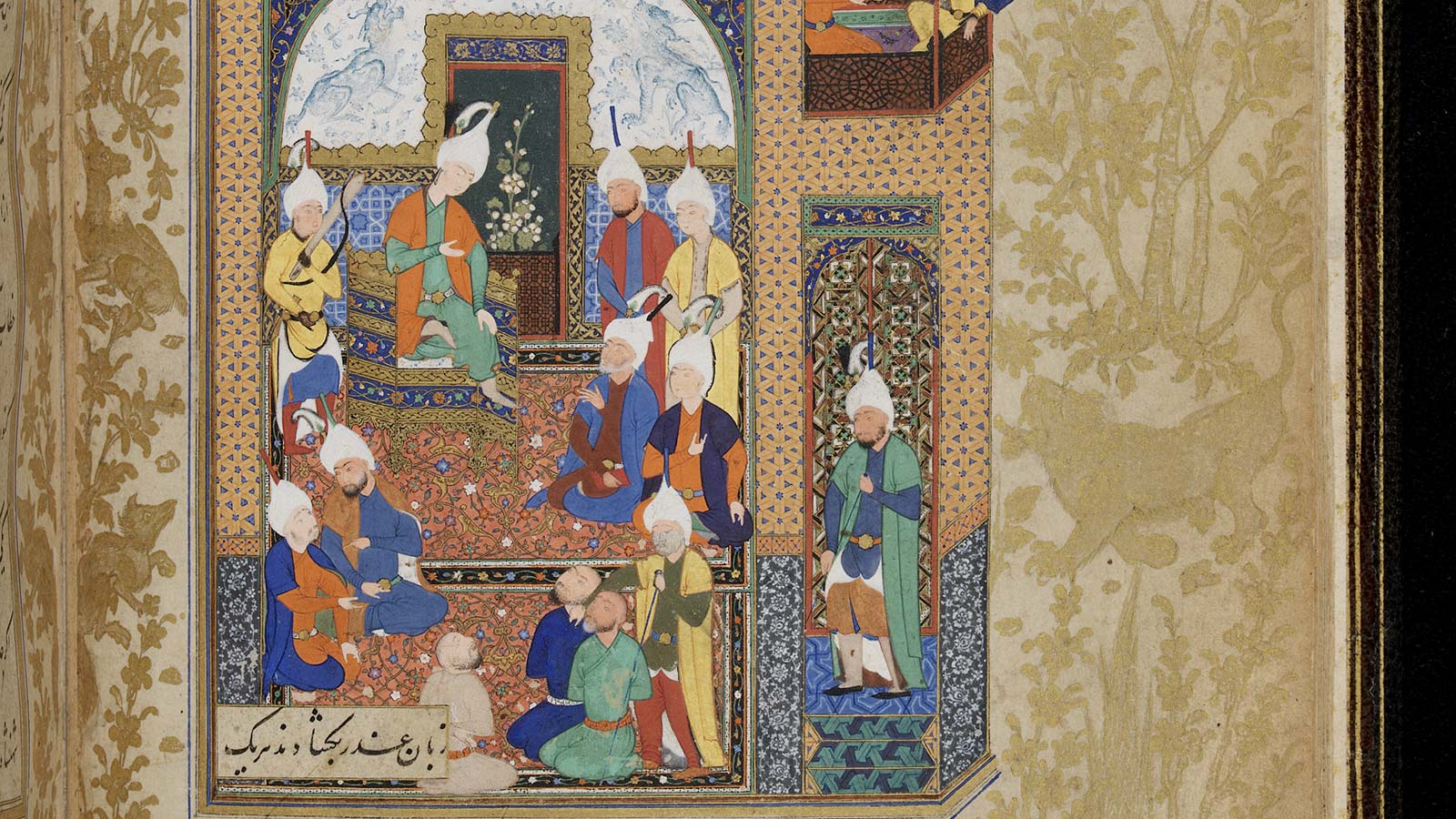The Incoherence of Philosophers
Written by Al-Ghazali, a Muslim thinker who lived in the late 10th and early 11th centuries, The Incoherence of the Philosophers has been translated from Arabic by Catarina Belo, a lecturer at the American University in Cairo. Al-Ghazali’s vast body of work in the field of Islamic theology, philosophy and mysticism made him, according to some scholars, the most influential Sunni thinker and theologian of all time. In this work, Al-Ghazali promotes, through a series of thematic discussions, a heated debate between Islamic philosophy and theology, assuming the role of theologian in order to uncover the inadequacies of philosophical thought. This work had a considerable effect at the time, leading to passionate discussions with other thinkers, such as Averroes, whose theories were inspired by Aristotle.
We spoke with Catarina Belo, who also translated another classic of Arab culture for the Foundation, The Virtuous City of Alfarabi, and she placed the work into context, explaining how Greek and Arabic thought were closely intertwined in the classical period of Islamic thought.
What is the relevance of this work to the history of ideas?
The Incoherence of the Philosophers is a very important work because it deals with the encounter and debate between Islamic philosophy, which has been influenced by Greek and Hellenistic philosophy, and Islamic theology, which is based above all on the Quran. The work includes sixteen thematic discussions on metaphysics and four thematic questions on natural philosophy, making up a total of twenty discussions. Al-Ghazali remains a widely studied thinker in the Islamic world today, and this is one of his most important works.
The work dates from 1095 and belongs to the classical period of Islamic thought. One of its fundamental themes is the concept of orthodoxy in an Islamic context. Throughout the book, Al-Ghazali tries to define what is acceptable from the point of view of Islamic doctrine, and what is not acceptable.
From this perspective, what does the author defend and criticise?
He argues that Islamic philosophers do not have demonstrative and conclusive proof of the fundamental theories of Islamic philosophy, such as the thesis on the eternity of the world, and various theories on the nature of God as conceived by philosophers.
He criticises the approach of Islamic philosophers, in particular Alfarabi (b. 950) and Avicenna (b. 1037) to ancient Greek philosophy, pointing out that they imitate the ancient philosophy of Plato and Aristotle without realising its contradictions and how it can contradict Islamic doctrine. Al-Ghazali treats these philosophers as a kind of heretical sect that has abandoned the practice of Islamic rituals.
In the introductory text to this work, you argue that Al-Ghazali made the link between philosophy and theology stronger. In what way?
Al-Ghazali speaks as a theologian, but uses Aristotelian logic to attack the positions of philosophers, hence the confluence between philosophy and theology, at least in formal terms. Al-Ghazali wrote an autobiography in which he describes his studies and his quest for truth. He states that he spent two years studying philosophy, which included Aristotelian logic. In a way, Al-Ghazali’s position in this work, The Incoherence of the Philosophers, is rationalist, not because he thinks that human reason has access to the whole truth, since we need revelation, but because he tries to point out the errors of Islamic philosophers using Aristotelian logic, that is, using the philosophers’ own methods, above all based on reason.
So there was a degree of similarity between Greek philosophy and Arab thought…
Yes, classical or medieval Islamic philosophy develops themes and questions from Greek and Hellenistic philosophy. Most of the works of Aristotle and other Greek and Hellenistic thinkers were translated into Arabic after the end of the 8th century in Baghdad, during the Abbasid Caliphate. This translation process meant that Greek and Hellenistic thought was translated at the very heart of the Caliphate and subsequently spread throughout the entire Caliphate. The translations carried on over the following centuries, and in this way the Greek and Hellenistic intellectual tradition had a decisive influence on Arab and Islamic thought. Medieval or classical Islamic philosophy is based above all on ancient Greek and Hellenistic thought, but is also influenced by Islam.
The philosopher Averroes responds to this book with The Incoherence of Incoherence…
In that work, Averroes gives a point-by-point response to Al-Ghazali and defends his own theories, inspired by Aristotle’s philosophy. Averroes states that the thesis presented by Alfarabi and Avicenna, which are criticised by Al-Ghazali, deviate from Aristotelian theories on the origin of the world, hence the need to return to Aristotle’s thought. Averroes doesn’t mention a work in Arabic that had a great influence on medieval Islamic thought, The Theology of Aristotle (also translated into Portuguese and published by Imprensa Nacional – Casa da Moeda), which was supposedly written by Aristotle, but in reality consisted of a partial translation of Plotinus’ Enneads. Therefore, The Theology of Aristotle was a Neoplatonic work, and although Averroes was not explicitly aware of the Neoplatonic influences in the work of Alfarabi and Avicenna, he realised that these philosophers did not faithfully convey Aristotle’s thought. Averroes therefore sought to revive this original Aristotelian thought, which he believed to be compatible with Islamic doctrine.
What challenges have you faced when translating this work?
I used the critical edition by Maurice Bouyges, which is almost a hundred years old, but is very complete and a fundamental reference in the panorama of editions of Al-Ghazali’s works. I also used a more recent edition by Michael Marmura, which contains a few variations compared to the edition by Maurice Bouyges. Both Marmura and Bouyes have also done important scholarly work on Al-Ghazali.

